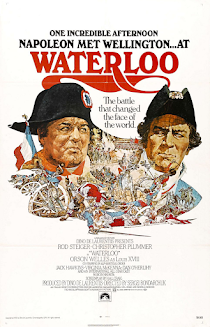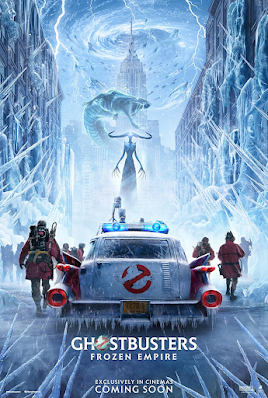Film Review #033 - Waterloo (1970)
The movie Waterloo (1970) directed by Sergei Bondarchuk focuses on an important time in history, specifically what happened to Napoleon after 1812 and in the Battle of Waterloo. In contrast, Napoleon (2023) by Ridley Scott is the bigger picture of Napoleon's life including his relationships with Josephine and historical battles he was involved in. This focus gives a different view on a famous person from history and an important event that affected Europe.
Introduction and Setting: "Waterloo" (1970) begins with a text introduction, setting the stage for a historical epic. The film's attention to historical accuracy is evident in the script and the scenes, providing a genuine portrayal of the events.
Cinematography and Editing: I liked how the movie is edited, transitions are nice and editing is very efficient. The cinematography, one one hand, especially in depicting landscapes with full camera shots, is visually stunning. The film's portrayal of the Waterloo battle scene is particularly impressive, feeling hyper real and more in-depth compared to Napoleon (2023). The last 30 minutes of the film, showcasing a massive number of troop actors, are both important and mind-blowing.
On the other hand, the cinematography was not the strongest in this movie. Although it was quite good, I felt like there were some inconsistencies with camera movements and how they shot certain scenes, e.g., the digital zoom ins and zoom outs are what triggered me and they did not feel "natural" and it was overused. In some shots this type of technique was necessary but in some it was not and it could have used different camera shot techniques.
On the bright side, there were also zoom ins with a camera that just felt right and more appealing; moreover, sometimes medium shots are not symmetrical when the person stands in the middle. I liked the free-movement camera shots and slow motion technique, it was very good.
Acting and Characterization: I liked the actors' performances and they fitted well in their own roles. Napoleon's role had a very strong performance. His emotional expression, tears and aggressiveness adds depth to its character making it feeling more genuine. In contrast with Napoleon (2023), Napoleon in terms of looks looks similar to the Napoleon that looked like in real life.
Pacing and Engagement: The movie's pacing is well-managed for its 2-hour length, allowing the narrative to unfold naturally without feeling rushed. While I found some parts of the film less engaging, the music and battle scenes were captivating and kept my interest.
Music and Sound Design: The music in "Waterloo" is exceptional, capturing an old-school feel that aligns with the 18th-century setting. It provides a stark contrast to the soundtrack of Napoleon (2023) film, standing out for its historical appropriateness. However, the sound mixing presented some challenges, particularly in discerning the actors' accents.
Costumes and Production Design: The costumes, along with the depiction of troops and locations, add a layer of realism to the events of the film. The noticeable effort put into these elements is exceptional. It contributes significantly to the film's historical authenticity.
Personal Reflection: Despite not feeling a sense of enjoyment throughout the entire movie, I admire the work put into it. The second half of the film becomes more intriguing, particularly with the detailed and realistic war battle scenes.
Overall Impression: Waterloo (1970) excels in its portrayal of Napoleon, storyline, and the accurate depiction of the historical events. The film's strength lies in its ability to bring historical events to life with accuracy and cinematic flair.



Comments
Post a Comment